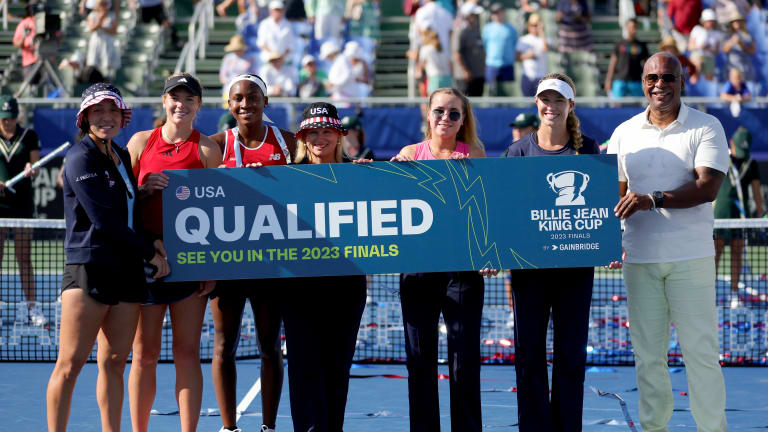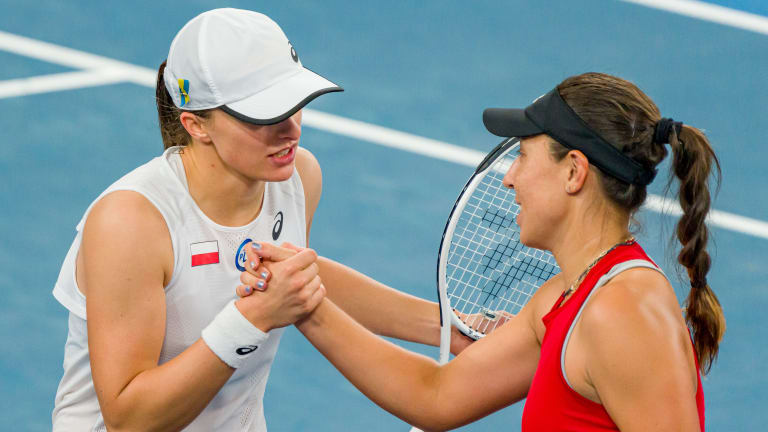Billie Jean King Cup
Where does the Billie Jean King Cup go from here?
By Oct 25, 2023Billie Jean King Cup
US Open junior champion Jeline Vandromme leads Belgium to 2026 Billie Jean King Cup Qualifiers on 18th birthday
By Nov 17, 2025Billie Jean King Cup
Movie buff Zeynep Sönmez is flying the flag for Türkiye
By Nov 15, 2025Billie Jean King Cup
First Billie Jean King Cup match in Malaga postponed following severe weather warning
By Nov 13, 2024Billie Jean King Cup
Billie Jean King Cup Finals relocated to Malaga, will run concurrently with Davis Cup Finals
By Jul 17, 2024Billie Jean King Cup
New life has been breathed into the Billie Jean King Cup, and team USA
By Apr 21, 2024Billie Jean King Cup
Jessica Pegula returns to form, leads U.S. past Belgium in Billie Jean King Cup Qualifier
By Apr 15, 2024Billie Jean King Cup
Led by Elina Svitolina, Ukraine turns to Amelia Island as home venue for BJK Cup Qualifiers
By Apr 10, 2024Billie Jean King Cup
Gauff, Pegula, Swiatek won't play in the Billie Jean King Cup Finals after the WTA Finals
By Oct 09, 2023Billie Jean King Cup
Saudi Arabia enters female team at ITF event for first time
By Feb 23, 2023Where does the Billie Jean King Cup go from here?
The proliferation of tour tennis and its myriad events has left traditional team competitions in time slots that are fundamentally unappealing to the players, particularly elite ones.
Published Oct 25, 2023
Advertising

Coco Gauff helped send the United States into the 2023 Billie Jean King Cup finals, but she won't be competing for her country in Seville, Spain next month.
© Megan Briggs
Advertising

Iga Swiatek and Jessica Pegula at the United Cup, a season-opening team competition with a more desirable time slot on the crowded tennis calendar.
© (C) Andy Cheung / ArcK Photography / UK Tennis Magazine / Getty Images
Advertising

Game, Set, Recharge
How Tsitsipas, Osaka and other pros embrace the weekly grind.